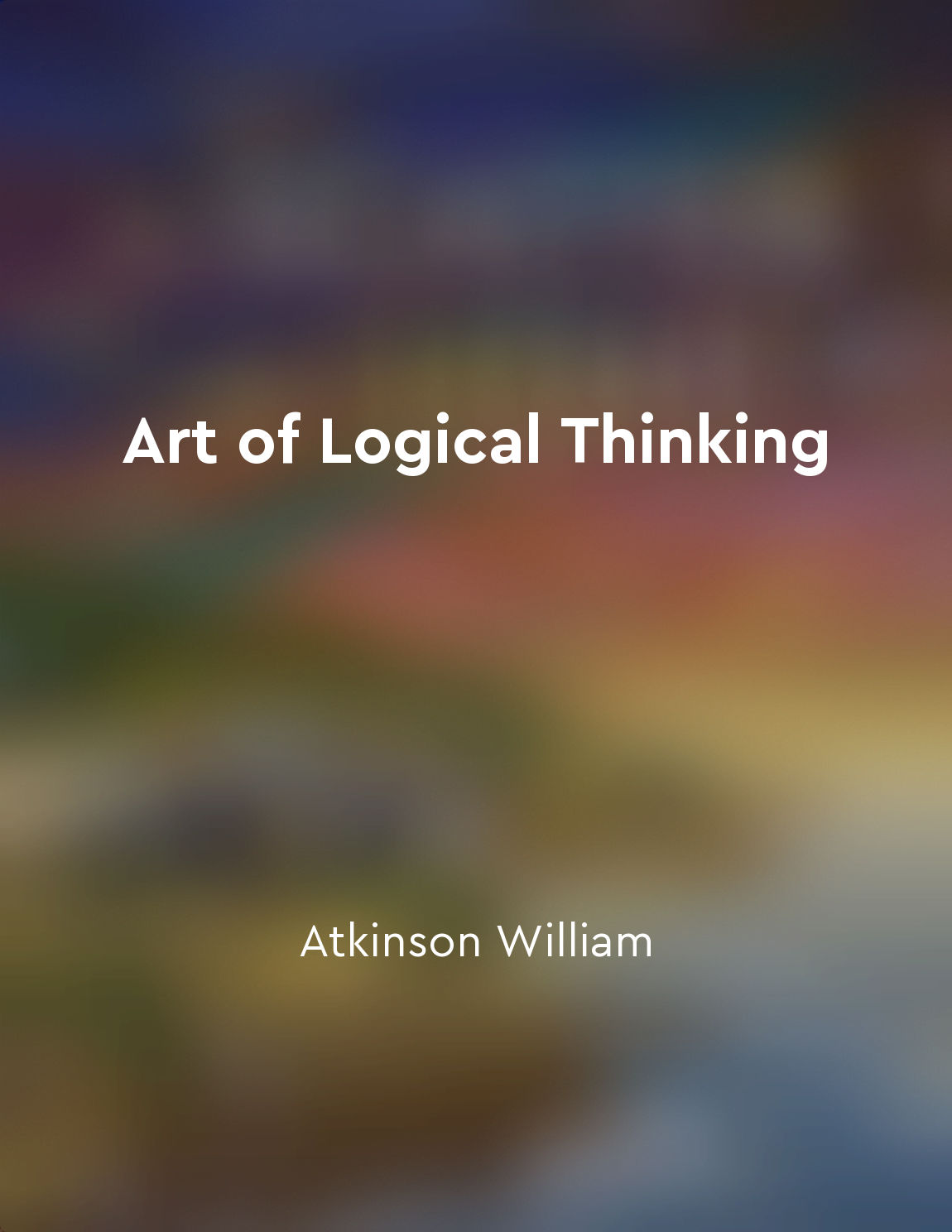Audio available in app
Assumptions should be supported by evidence from "summary" of Art of Logical Thinking by Atkinson William
When we make assumptions, we are essentially making educated guesses or suppositions about a given situation or set of circumstances. These assumptions are based on our past experiences, knowledge, or beliefs that we have accrued over time. However, it is crucial to remember that assumptions should not be made in a vacuum; rather, they should be supported by concrete evidence or logical reasoning. Evidence serves as the foundation upon which our assumptions are built. It provides a solid basis for our beliefs and helps us to form rational conclusions about a particular matter. Without evidence, our assumptions are merely conjectures or opinions that lack substance and credibility. Therefore, it is imperative to gather relevant evidence before making any assumptions in order to ensure their validity and reliability. Evidence can take many forms, such as factual data, empirical observations, expert opinions, or logical arguments. It is essential to consider the quality and reliability of the evidence that supports our assumptions, as not all evidence is created equal. By critically evaluating the evidence at hand and determining its relevance to the situation at hand, we can strengthen the validity of our assumptions and make more informed decisions. Moreover, evidence helps us to challenge and test our assumptions, allowing us to refine and revise our beliefs based on new information or perspectives. By being open to new evidence and willing to reconsider our assumptions in light of conflicting evidence, we can avoid falling into the trap of confirmation bias or tunnel vision. This intellectual humility and flexibility are essential for developing a logical and rational mindset.- The principle that assumptions should be supported by evidence is fundamental to the practice of logical thinking. By grounding our assumptions in solid evidence and being willing to test and revise them as needed, we can enhance our critical thinking skills and make more reasoned judgments. This approach not only leads to more robust and defensible conclusions but also fosters a deeper understanding of the complexities of the world around us.
Similar Posts
Strive for clarity and precision in thought
The importance of clarity and precision in thought cannot be overstated. When we strive for clarity and precision in our thinki...
Using persuasion ethically is important for maintaining relationships
Persuasion can be a powerful tool in any kind of relationship, whether personal or professional. It allows you to influence oth...
Intuition is a catalyst for innovation
Intuition is often seen as a mysterious force, something that cannot be explained or understood. However, in reality, intuition...

Embrace selfcompassion
Self-compassion is about treating yourself with kindness, understanding, and acceptance, especially in times of struggle or fai...
Stay curious and openminded during challenging talks
When facing difficult conversations, it is crucial to approach them with a sense of curiosity and an open mind. This mindset ca...
The natural world is full of wonders waiting to be discovered
It is a common misconception that the natural world has been thoroughly explored and understood, that there are no more mysteri...
Utilize analogies and metaphors for clarity
Analogies and metaphors are powerful tools that can help you make complex ideas more accessible and understandable to your audi...

Revisiting old cases
In the world of crime-solving, there is a common practice that detectives often resort to when faced with a dead end - revisiti...
Trustworthiness is a key trait in persuasive communicators
Trustworthiness is a key trait in persuasive communicators. When individuals are perceived as trustworthy, their messages are m...

Judiciary interprets and applies the Code
The judiciary plays a crucial role in the legal system by interpreting and applying the Code. This involves analyzing the langu...


